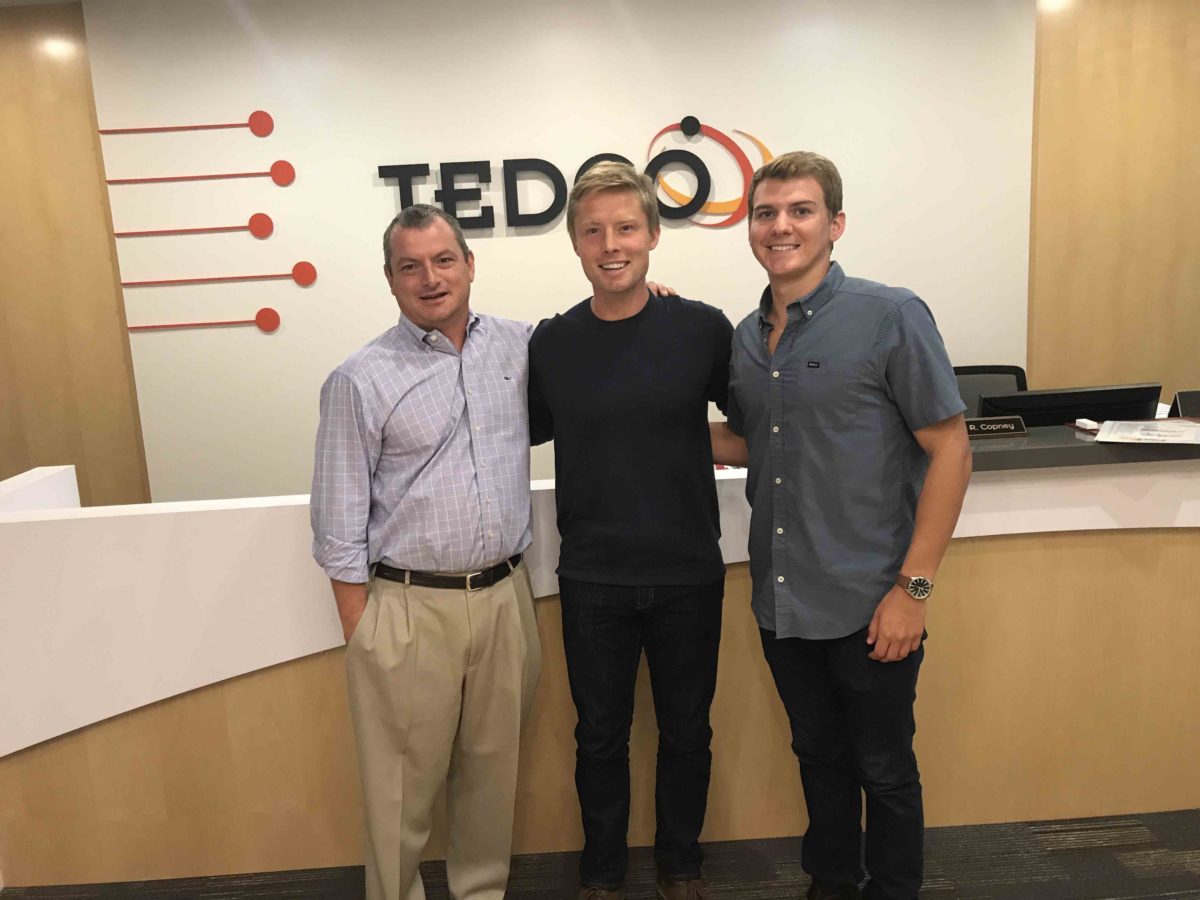TEDxPhiladelphia was all about our city as “The Workshop of the World,” and they had the goods to prove it.
NextFab Studio built the TEDxPhiladelphia sign that acted as the backdrop to every talk. The Department of Making + Doing built the red “X” pins found on many a lapel. There was even a Maker Faire in the basement of Temple University’s Performing Arts Center, which hosted the volunteer-run, sold-out event that showcased local artisans.
If you can’t get enough TEDxPhilly, check out their event during Philly Tech Week about how Happy Cog redesigned TEDxPhilly’s website.
RSVP
Below, find some of the day’s highlights.
Best Call to Action
Nikki Adeli has a challenge for adults: Believe in her generation. The high schooler at Science Leadership Academy is tired of hearing about how she and her peers are the future leaders of tomorrow—she thinks they can be the leaders of today, with a little help from their teachers.
In her talk, Nikki expounded on her experience as the daughter of Iranian immigrants and a student in the American education system. Take the focus off test-taking, she says, and give students what they really need, like volunteer opportunities and internships. We’re failing our students by not holding them to higher expectations, and not giving them the tools to help them actually reach them.
Best Accessibility Advocate
Austin Seraphin lists the time he bought his first iPhone as one of the moments that changed his life forever. That’s because Seraphin was born blind — and the iPhone has features built into it, like VoiceOver, that allow anyone, including the visually impaired, to use it. Everything should be like that, he says — accessible at its core, rather than as an afterthought. A self-taught programmer since age seven, Seraphin believes that everyone — startups, corporations, even the city of Philadelphia — can make a conscious effort to be accessible. “It’s in our DNA,” he says, and after listening to him speak, you’ll believe it too.
Most Positive Outlook
What is industrial design? Bresslergroup‘s Mathieu Turpault says it’s creating beautiful products for the everyday. But the beautiful, useful objects of his grandfather’s time are slowly disappearing.
You no longer have to get up and switch on the thermostat because you can do it from your phone.
Turpault is OK with this: “We’re changing,” he says, as he tells us about the time his son laughed at a lewd episode of South Park on his tablet while simultaneously playing a video game. As technology advances and we along with it, industrial designers like Turpault are tasked with reinventing themselves professionally. The question, he says, is: Is Philadelphia ready to reinvent itself and stay relevant?

Best Take on Neighborhoods
Advocates fought for Chinatown, and that’s why we have Chinatown (and not something like Washington, D.C.’s non-Chinatown), said TEDxPhilly veteran Chris Bartlett. The executive director of William Way LGBT Community Center used the history of Philly’s Chinatown to talk about how Philadelphians should fight for their neighborhoods.
Bartlett took us back his first days in the Gayborhood, naming landmarks like Woody’s and Giovanni’s Room as pillars of the community. He also left us with this great definition of maps: the power of maps is that they help you imagine the neighborhood that you call yours.
Most “Whoa” Moment
“Could we transform the body into an interactive interface?” asked Genevieve Dion, who runs Dexel’s wearable technology lab. Let’s think about clothing as a device, rather than a container of technology, she said.
Most Almost Relevant History Lesson
Jack Lucid of Disston Precision Saw Works gave a talk with plenty of laugh cues, but not much coherence. The Disston Saw Works in Tacony, which Lucid called a “former vacation spot” for the more urban Philadelphians of the 19th century, was once one of the nation’s largest industrial employers, with a history of corporate responsibility that Lucid seemed proud to relay. But in talking about the ways in which a seemingly obsolete business like precision saw making has managed to stay modern and relevant, Lucid seemed to miss some prime opportunities to drop a few nuggets of overarching wisdom about how Philadelphia manufacturing might also be able to reinvent itself.
Best Notecards
It’s not common to see a TED speaker use notecards. But Jim MacMillan of the Gun Crisis reporting project used the visual component of his presentation to display some poignantly vivid–if sometimes hard to look at without diverting your eyes–images from his partner in the gun violence reporting project, photographer Joe Kaczmarek.
With no talking points to follow along on the big screen, MacMillan went with some tried and true note cards. As a testament to the impact of Kaczmarek and MacMillan’s co-reporting project, the heftiness of the visuals and the sincerity of MacMillan’s call to action (“When are you going to do something about it?”) drove home the idea that, while the Gun Crisis has begun “shifting the media cliches” about gun violence in Philadelphia, the conversation is still far from finished.

Best Use of Metaphor
Natalie Nixon‘s talk “Doin’ the Thing: The Future of Work is Jazz” about how her life-long love of jazz led to her rethinking of working environments certainly “did the thing.”
As the director of the Strategic Design MBA program at Philadelphia University, Nixon is responsible for pushing the creative possibilities of organizational management. Using Frank J. Barrett’s seven principles of how creativity and improvisation in jazz correlate to organizational learning, Nixon explained how allowing coworkers to “riff a little” and improvise often leads to outstanding innovation and creative results. (It’s how a Google employee was given the freedom to develop Gmail.)







